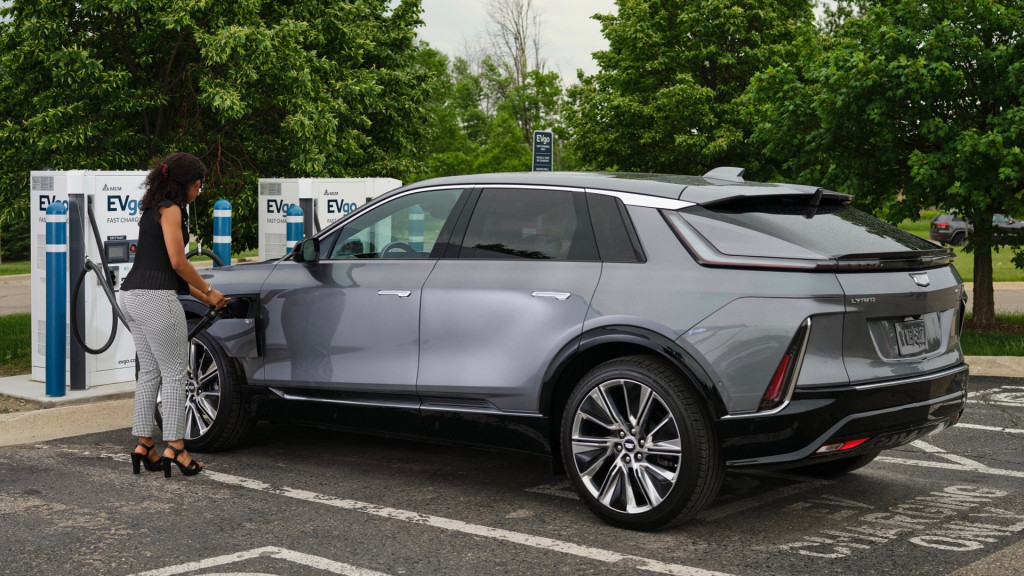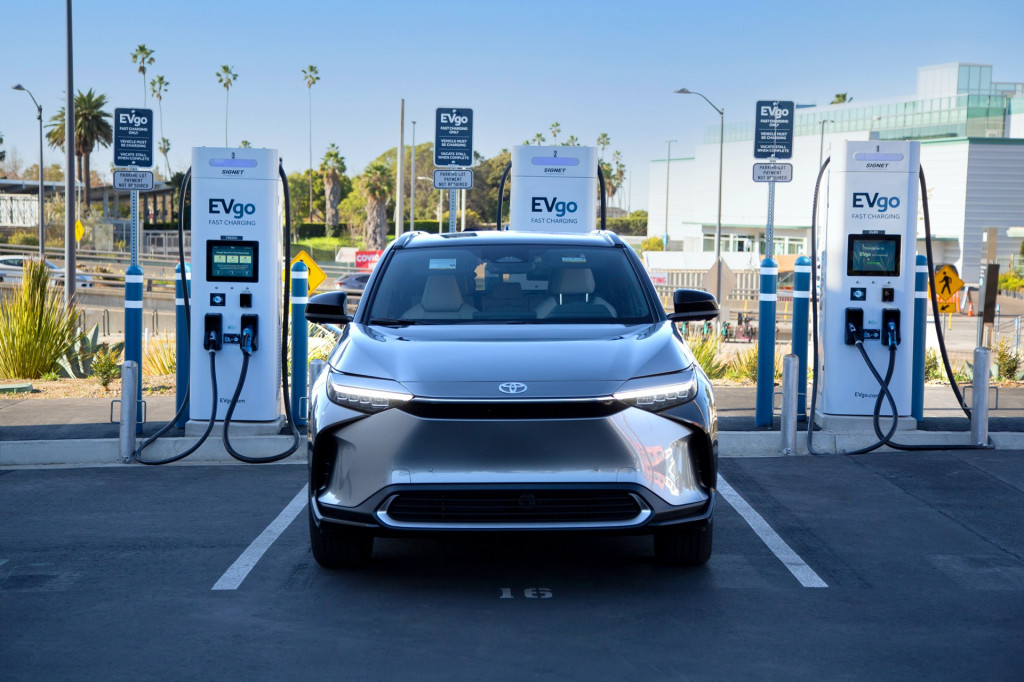Utah EV charging costs rise in July, to subsidize lower gas prices

Utah EV drivers will soon pay more to charge their vehicles, all to subsidize lower gas prices.
In July, gas prices in Utah are set to drop thanks to lower gas taxes, which are set to decrease from 16.5% to 14.2%, but EV drivers will be paying a 12.5% tax to use commercial charging stations. These measures are part of House Bill 301, which was signed into law by Utah Governor Spencer Cox on March 22.

2023 Cadillac Lyriq at EVgo DC fast-charging station.
In January, Utah’s gas tax had an automatic increase of 4.5 cents to 36.4 cents per gallon (for both gasoline and diesel) under a law enacted in 2015, but HB 301 brings it down by 2 cents per gallon, according to Transport Topics. In an interview, the bill’s sponsor, Representative Mike Schultz (R-Hooper) said the gas tax “has increased much faster than any of us thought” and that lowering it is “a proper thing to do.”
Yet EV drivers will now be paying more to charge their cars. The new legislation also raises registration fees for EVs, plug-in hybrids, and hybrids. So lower gas prices are in effect being subsided by increased taxes and fees on drivers of plug-in cars. The state is becoming the economist, subsidizing the cost of gasoline, when ownership costs favor EVs.

2023 Toyota bZ4X at EVgo charging station
Although one recent study found that the high initial cost of EVs remains a critical barrier for EV adoption, ownership costs are generally lower thanks to fewer regular maintenance needs and, yes, the lower cost of charging an EV compared to fueling a gasoline or diesel car. The ownership-cost advantages of EVs get even stronger for SUVs and pickups, another study found.
While a charging tax like the one being instituted in Utah can change the equation versus gas prices, owners should be able to bank other savings. Plug-in hybrids and EVs cost less to repair than non-electrified vehicles, according to a 2020 Consumer Reports Study.